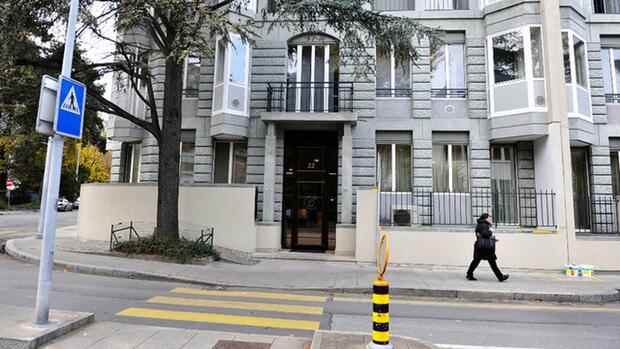The high-net-worth customers used index certificates issued by the bank.
(Photo: Banque Cramer)
Zurich, Cologne The Geneva-based private bank Cramer & Cie SA is suspected of helping German entrepreneurs evade millions in taxes. This emerges from a search warrant of the Munich District Court, which is available to the Handelsblatt.
The high-net-worth customers used index certificates issued by the bank. In doing so, they achieved alleged losses and thus reduced their tax burden in some cases by double-digit millions.
Marc-Henri Balma, board member and chief operating officer of Banque Cramer & Cie, did not want to comment on the allegations when asked by Handelsblatt. “As you can imagine, it is the policy and practice of our bank to abstain from any comments on its customers, whether real or perceived,” said Balma in writing.
The fact is that the certificates were index-based securities from Bank Banque Cramer & Cie. It is not known whether the public prosecutor’s office is taking action against the bank itself or against bank employees. The authority did not want to comment on the case when asked.
Top jobs of the day
Find the best jobs now and
be notified by email.
Three public prosecutors are investigating the complex: Munich, Frankfurt and the Frankfurt General Public Prosecutor’s Office. With a few dozen service providers and 44 high-net-worth customers, the Munich I public prosecutor’s office has most of the suspects on its list, the two Frankfurt authorities suspect around 20 people. This group includes a tax advisor from Hessen, who is considered to be one of the inventors of the model.
The tax trick was previously unknown
Through the previously largely unknown tax trick, those involved are said to have avoided hundreds of millions of euros in taxes. In Munich alone, the assumed damage to the tax authorities is around half a billion euros.
The model works like this: The initiators of the model founded two companies. They each acquired two opposing certificates, the base value of which is, for example, a stock market index such as the Dax. One bet on rising prices (bull), one on falling prices (bear). These are special products that were specially created for private customers. In some cases, they were designed by Banque Cramer & Cie.
The certificates are structured in such a way that it is clear when they are issued that the bets neutralize each other. The loss of one security could be offset against the profit of the other security. In terms of taxation, nothing happens at this level.
The supposed highlight: The company with the loss certificate could be sold to the customer’s company and merged with it. The defendants later offset the minus of the certificates resulting from the sale of the loss certificates after the merger with accruing profits – with maximum tax effect.
Cooperation between investors, consultants and bankers
Such a tax-saving model requires the cooperation of investors, consultants and bankers. The company Co-Invest from Planegg near Munich played an important role in this. She is accused of having devised and distributed what the prosecutors believe is illegal tax evasion.
When asked, Co-Invest did not comment on the allegations. Some of the Co-Invest employees are among the accused. They reject the allegations through their lawyers. The model is covered by the Transformation Tax Act. The regulation was not changed until 2021, according to the legislature it should also be applied retrospectively.
It is noticeable that this is not the first time that the Cramer & Cie bank involved has produced negative headlines. The relatively small financial institution with just under 90 employees came into the focus of the Swiss Federal Prosecutor’s Office in October last year.
Cramer is said to have been involved with other Geneva-based private banks in a corruption case involving the Brazilian state-owned company Petrobras. The bank is suspected of failing to prevent money laundering offenses due to internal organizational deficiencies, according to the allegation at the time.
Probably in response to the money laundering scandal, the bank replaced its entire management team at the beginning of the year. The owner, the investment company Norinvest, wanted to switch to growth after difficult years and several takeovers. In the first half of 2021, Cramer posted a profit of 4.3 million francs (around four million euros) – a meager amount for a fine Geneva address.
More: Why the investigative authorities are on the heels of the wealthy

